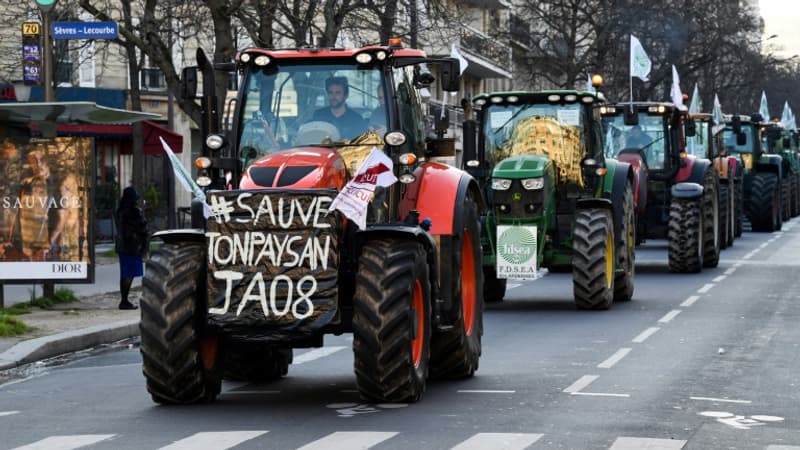All beet losses will be compensated if jaundice strikes in 2023, the Agriculture Minister and industry representatives said Thursday, concerned that farmers continue to grow crops despite the end of neonicotinoid-treated seeds.
The day before, more than a thousand farmers marched in Paris to denounce the “agricultural decline” induced, according to them, by the ban on pesticides that they consider essential for their activity.
Beet seeds are usually planted starting in March. Planters threatened to switch to other crops in the absence of neonicotinoid insecticides to protect this sugar root from the aphid-borne jaundice virus.
safety net
During a press conference on Thursday, Marc Fesneau committed to the “principle of compensation for the loss of jaundice, if there is jaundice.”
Referring to a “safety net”, the ministry said Thursday night in a press release that “to do this, the government will request the activation of a European crisis measure, and is now beginning work to build the system , in connection with the European Union”. Commission”.
“Fifteen days ago we were without a solution, we would have lost a quarter of the French surfaces [de betteraves]we would have closed factories, lost jobs (…) it is a great step forward for the sector,” Franck Sander, president of the General Confederation of Beet Growers (CGB), a specialized section of the majority union FNSEA, told AFP.
“It is a device without a roof, without a franchise, a public insurance that will only compensate the loss linked to jaundice,” he added.
In compliance with a European court decision, France renounced at the end of January to authorize by derogation the treatment of sugar beet seeds with neonicotinoids, implicated in the massive decline of bee colonies.
The planned compensation scheme avoids the “traps” of 2020, according to Franck Sander. That year, in the absence of neonicotinoids, the harvest had fallen to the lowest level in more than 30 years due to a severe bout of jaundice.
30% drop in yields
Yields had fallen 30% on average. The sectors showed -70% harvest compared to the usual potential. These losses had only been partially covered due to a European standard (“de minimis”) that limits the compensation that a farm can receive every three years to 20,000 euros.
The Tereos group, the world’s second largest sugar producer, praised in a press release “the responsiveness of the government and state services to this unexpected decision by the European court.”
To “help its members get off course” and encourage them to plant, competitor Cristal Union has increased the purchase price of a ton of beets by around 12%.
The representatives of the sector estimated that the viral pressure of jaundice announced this year “higher than that of 2021 and 2022, but much lower than that of 2020”.
“We will continue to need plant protection products to protect our crops,” Franck Sander concluded, and other insecticides besides neonicotinoids have proven effective “in case of low to medium aphid pressure.”
Source: BFM TV


